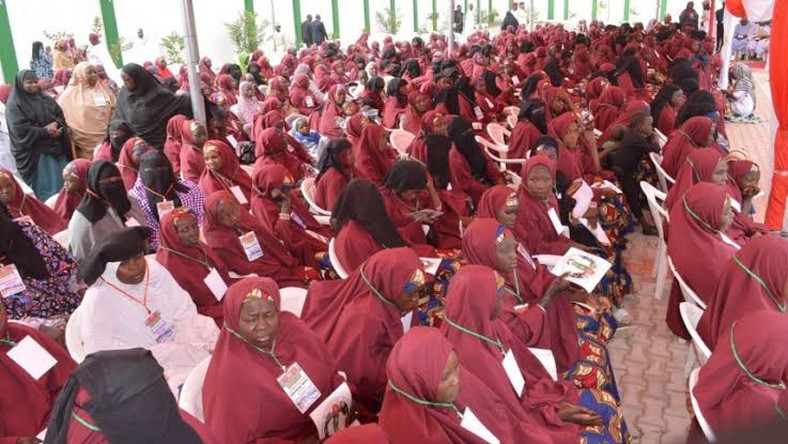It is disgraceful to see how polarisation is affecting our coexistence in spite of calls from our founding fathers, and it is even more worrying that a minister of the federation is leading an agenda to amplify it.
Sir Ahmadu Bello, Sardauna of Sokoto, once said to his contemporary, Dr Nnamdi ‘Zik’ Azikiwe, that ‘we should understand our differences instead of forgetting them.’ If the Minister of Women Affairs, Uju Kennedy-Ohanenye, an Easterner and a Christian, had made any effort to understand the way of life of the Northern Muslims, she would have appreciated Nigeria’s diverse differences.
For those who are aware of the cultural practice in Northern Nigeria, particularly among the Hausa-Fulani communities, it is the bride’s family that furnishes the newlywed’s new home and provides food for the wedding festivities. The bride’s parents often provide essential household items such as food supplies (gara), kitchenware, and furniture like chairs, beds and wardrobes. This helps the newlyweds start their new life together and demonstrate the support and goodwill from the bride’s family.
Business owners kick as AMAC demands N5m premises inspection levy
BON sports host amateur golf tourney for senior citizens
Similarly, providing food for the wedding is an important aspect of the celebration. The bride’s family ensures that there is enough food to cater to all guests before their daughter is taken to her new home.
Considering the state of the economy, the level of poverty in the land and the conditions of widowed female parents, it will take a lot of work for them to afford such a burden. In this economic hardship, one way to raise money for their daughters is to inflate the bride price, a practice that is frowned upon. And doing so will make it difficult for less affluent men to marry. This links to the theory that marriage is tied to economic standing, and it can impact social stability. The consequent outcome of such inflating bride prices is the shortage of brides in society, which is not a good sign for social stability.
As envisaged, when financing marriage gets in the way, it is not just the brides that are impacted but also the men who will be deprived. In the North, there is pressure for unmarried men to be married, which pushes young men from poorer economic backgrounds into extreme measures. Even when a man can afford the bride price, the bride’s family must also be able to contribute to furnishings and food for the newlywed’s home. Men who cannot marry legally may turn to illegal means to get the required money to do so.
The critics of this Niger State marriage must pay attention to critical evidence that points towards socioeconomic challenges in unmarried societies. Studies show even though corruption, weak institutions and ethnic and religious intolerance lead to social conflicts, the lack of marriage adds to social unrest, too.
A study at Yale University and Texas A&M University found that high bride price is a ‘critical’ factor ‘predisposing young men to become involved in organised group violence for political purposes.’
Another study from the London School of Economics found that whenever poor men find themselves unable to marry due to high bride prices, it results in sexual frustration and social marginalisation. These studies linked their findings to the civil wars borne out in fragile and politically violence-prone places like Guinea, Sudan, South Sudan, the Central African Republic and Chad.
If the intentions of the minister were any good, she would have first sought an enquiry into the marriage sponsorship, as suggested by the Niger State’s Assembly speaker, instead of going to court to attract sensational headlines. After all, the point of enquiry is to gather evidence.
But it was clear that her motive is different, and she has succeeded in attracting speculations and fifth columnists into the discussion.
The assumption by the critics who suggest some of the brides may be consenting for financial gain reminds me of the Duchess who, upon acquiring a full appreciation of sex after marriage, asked the Duke if it were not perhaps too good for the poor people. But only if not for their agenda, they would have respected the studies that show married people manage money better, are less likely to report economic hardship and build more wealth together than they would alone.
Understandably, if any of the girls had been forced into the marriage or were below the age of marriage as stipulated by Nigerian law, then this is wrong. According to reports from the Imams Forum of Niger, the girls are not below 18 years old – the legal age of marriage and each one of them had consented to the proposed marriage. But this is different, the minister and the critics have a different agenda.
On the contrary, the speaker could have made his contributions without publicising his charitable actions. He should remember that this is not only about scoring political points. He also has social and religious responsibilities. Culturally, as Muslims, we frown upon those who publicise and politicise their charitable activities, as stated in the Hadith. Nonetheless, we pray for his goodwill gesture to bring stability to the region, as seen in Kano, where banditry is a thing of the past.

 Join Daily Trust WhatsApp Community For Quick Access To News and Happenings Around You.
Join Daily Trust WhatsApp Community For Quick Access To News and Happenings Around You.